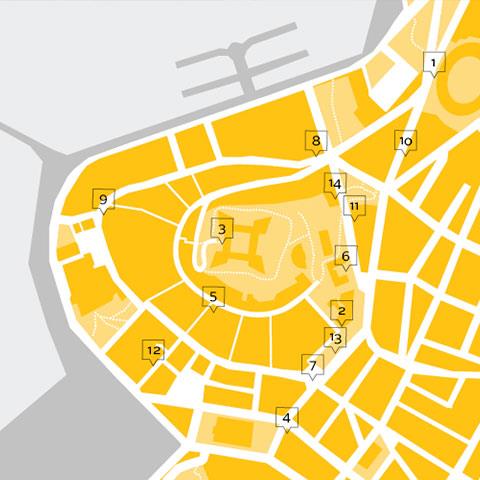Pula Film Festival once again welcomes a host of important authors and film theorists. Within the Pula PROfessional Programme, two new books will be presented, which are of great importance to the Croatian and European film community. The fist is a monograph on Nikola Tanhofer, one of the most important Croatian film authors, who has made a significant contribution to Croatian film with his artistic accomplishments. The second book is the new book by Nikša Svilinčić - Programiranje igranog filma 2, a sequel to the first book that intrigued the film public with its approach. And no wonder, seeing how Nikša Svilinčić tries to provide a scientific answer to the question of how to make a hit film, a film to win over audiences!
Nikša Sviličić: Programiranje igranog filma 1 and 2
Funditus, Zagreb: 2016.
Moderator: Mario Gigović
Tuesday, July 18 at 12:00 I Giardini
By setting and testing hypotheses, which correlate the expressivity of the semiotic-narrative screenplay expression of Croatian feature film with the reception by the audience, the books by Nikša Sviličić, PhD, Programiranje igranog filma 1 and 2, provide a scientific answer to the question of how to make a feature film to ‘win over’ audiences.
In a very precise, thorough scientific research, the author recognises the screenplay and mise en scène ‘positive stereotypes’ that indirectly contribute to the attractiveness of a film, and can be measured by a higher number of visits to screenings and TV audiences, offering a possibility of creating predictors for the ‘formula of success’ of a film, both with audiences and critics. The author analyses a large number of different narrative-semiotic, set, and mise en scène attributes and motives we assume affect the mood of the audience towards the film, and which have been used in 144 Croatian feature films since the Republic of Croatia gained its independence to today. The books show to what extent the narrative-semiotic film motives are in direct/indirect correlation with the certainty of success of Croatian feature film in TV and cinema distribution.
Diana Nenadić, Silvestar Kolbas (Eds.): Tanhofer
Croatian Film Association, Croatian Film Directors’ Guild, Zagreb: 2016.
Moderator: Bruno Kragić
Wednesday, July 19 at 12:00 I Giardini
With the introductory portrait of the fist historian of Croatian film, Ivo Škrabalo, and the final in memoriam to director Zvonimir Berković, this monograph dedicated to film director, cinematographer, screenwriter and pedagogue Nikola Tanhofer, published jointly by the Croatian Film Association and Croatian Film Directors’ Guild, brings an array of critical and essayist interpretations of Tanhhofer’s work written by critics across generations and film experts from various professions, his own memoir accounts and prose on his film professions, as well as recollections of his former students, colleagues and friends about various situations from different periods of his professional and private life. The monograph includes texts from: Zvonimir Berković, Dragan Jurak, Silvestar Kolbas, Petar Krelja, Juraj Kukoč, Enes Midžić, Tomislav Mikulić, Silvestar Mileta, Jurica Pavičić, Nenad Polimac, Nenad Puhovski, Damir Radić, Stipe Radić, Vicko Raspor, Ivo Škrabalo, Nikola Tanhofer, Slaven Zečević
The Time Machine: The Coral Princess
Moderators: Leon Rizmaul i Daniel Rafaelić
Friday, July 21 at 12:00 I Giardini
The earliest history of Croatian film is a very fruitful field, as it offers the interested parties a range of unexplored issues that require a systematic approach. In the period between the two World Wars, very few domestic films were filmed, and even less were preserved. However, this does not mean that no films were made. If the domestic film crews could not film, foreign crews arrived. In this year’s edition of Cinematheque, within the Time Machine project, we are bringing back a German-Yugoslavian co-production, the 1937 film The Coral Princess, and we are screening it from 35 mm film. It is a fun film that was shot in Split, Hvar, and mostly on the Island of Zlarin. The then famous foreign workers in Germany, Ivan Petrović and Ita Rina, play the leading roles, and the music was composed by the Split composer Ivo Tijardović. That same summer, Tijardović also composed the music for Song of the Adriatic, which we will also be bringing back to the Adriatic, after eighty years.
This year’s Pula PROfessional also presents the promotion of the booklet The Coral Princess, an almanac of filmography papers about the filming in the Adriatic in 1937. Film archeologists Dejan Kosanović, Daniel Rafaelić and Stanko Ferić analyse The Coral Princess, and Leon Rizmaul analyses Song of the Adriatic. The biography of famous actor Ivan Petrović, the main driver of filming in Dalmatia, is written by Aleksandar Erdeljanović, and musicologist Irena Paulus presents the music by Ivo Tijardović. The Coral Princess and Song of the Adriatic will be screened at Valli Cinema on Saturday, 11 July 2017, at 7 p.m.






